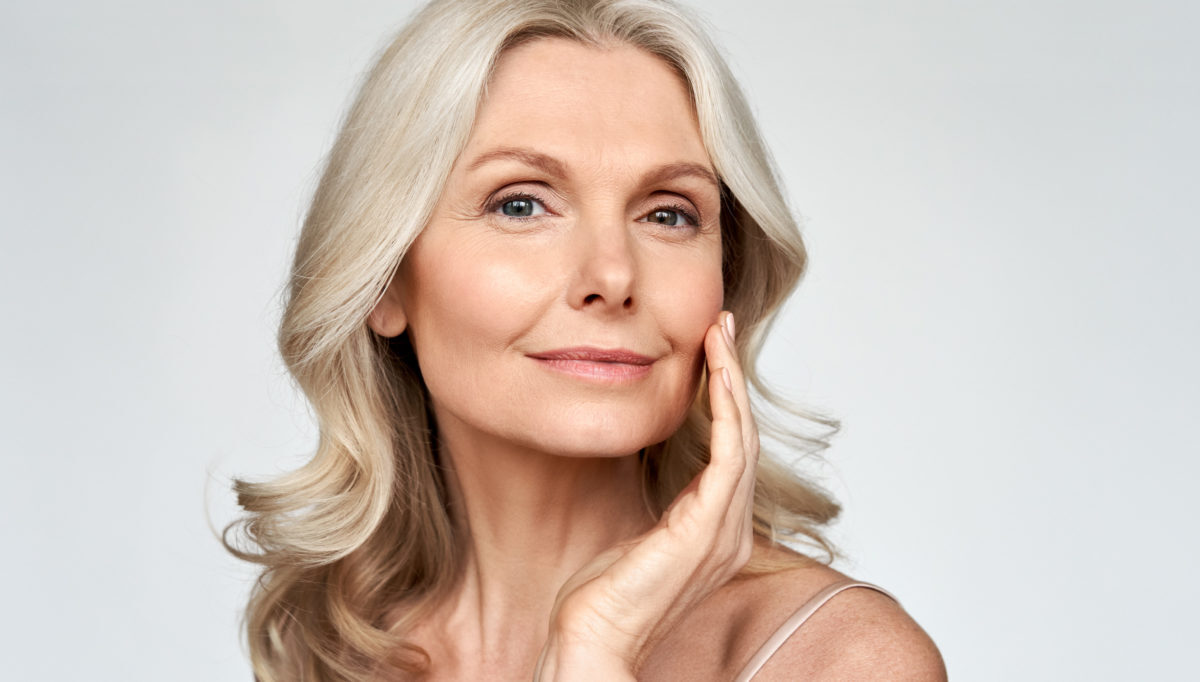
- August 20, 2021
- Amour Beauty
- Comments Off on THE SCIENCE OF SKIN AGEING
Why does our skin age? You might have asked yourself this question at some point. Having smooth, radiant skin is desired by so many of us, and finding ways to maintain a youthful complexion has been a goal of the aesthetics industry for as long it has been around. Skin ageing is a fact of life and is perfectly normal, but there are things you can do now and in the future that can help.
FIRSTLY, WHAT CAUSES AGEING?
Healthy skin has a smooth outer layer that acts as a barrier to water and environmental injury. Collagen (which provides skin firmness), elastin (which supplies elasticity and rebound) and glycosaminoglycans (to keep the skin hydrated) are plentiful in young skin. However, age-related changes begin in our 20s showing up as intrinsic (natural ageing) or extrinsic (environmental damage). Intrinsic or chronological ageing takes place regardless of environmental influences and is genetically determined. As we age, we gradually begin losing collagen in the dermis at a rate of approximately 1% a year after the age of 20. Our collagen and elastin fibres also become thicker and looser which can result in wrinkles. As we reach our 30’s & 40’s, the transfer of moisture from the dermis to the epidermis is slowed, and fat cells begin to shrink, leading to dullness and thinning of the skin. Extrinsic ageing results from environmental damage. It appears as a thickening of the outmost layer of the epidermis, actinic keratosis, sunspots, skin cancers, exaggerated loss of collagen, elastin, and glycosaminoglycans (GAGs). This results in roughness, uneven tone, and wrinkling. Extrinsic ageing is worsened by excessive sun exposure, smoking, alcohol intake, a poor diet, poor sleep quality and lack of skincare.
WHAT IS HAPPENING IN THE SKIN?
To further understand skin ageing, we need to understand the structure of the skin. As we age, changes occur in the epidermis, dermis and hypodermis leaving the skin more prone to infection and trauma. The epidermis and dermis are faced with constant exposure to pollutants throughout our lifetime leading to cumulative damage that can impact the appearance of the skin. The epidermis is the skin’s surface layer which is rich in keratin, contains melanin and sheds dead cells. Scientists believe that sun damage leads to cells in the epidermis releasing chemicals that lead to deep wrinkles (a classic sign of UV-induced radiation). The second layer is the dermis, which is home to a complex arrangement of extracellular matrix proteins (ECM) such as collagen and elastin. Fibroblast cells in the dermis produce these proteins, but they are also connected to them. As we age, ECM proteins lose integrity and become fragmented. Fibroblasts then lose their ECM connections leading to a change in their shape, which affects cell function. This series of events leads to a reduction in elasticity and loss of skin tone.
OTHER SKIN CHANGES
Facial movement, sleep position and gravity are other factors that lead to your skin showing signs of ageing. Facial movement lines (like laugh lines) are more prominent when the skin starts to lose elasticity. These lines may appear horizontally on the forehead, vertically on the skin above the nose and as small, curved lines at the temples. Sleep creases are a result of the way the head is positioned on the pillow. They commonly show up on the side of the forehead and the middle of the cheeks. Frequently changing sleeping positions, sleeping on your back or using a silk pillowcase can help reduce the appearance of sleep lines. As you age, it is common to experience itching and dry skin, particularly when the weather starts cooling down. This is known as a ‘winter itch’ and 85% of older people develop this as overheated indoor air is dry. Loss of sweat and oil glands is also common as we age and can worsen dry skin.
WHAT YOU CAN DO
Ageing is impossible to stop but knowing how to look after your skin and making lifestyle changes can help minimise the environmental damage and can keep you looking younger for longer.
Our top tips for keeping your skin looking fantastic include:
Sun protection: If you are not already, start using an SPF of at least 30+ daily to protect your skin against damage from UVA and UVB rays. DMK’s Soleil Defence SPF50+ is a great option that is perfect for everyday use. For extra protection, always wear a wide brim hat, light coloured clothes to reflect the sun and sunglasses with UV protection.
Retinoids: Retinoids or vitamin A derivatives are some of the most well-studied anti-ageing skincare ingredients. Retinoids such as DMK’s Revitosin and Revise-A encourage skin regeneration, aid collagen production, and help to improve the skin’s texture.
Use the right moisturiser: Moisturisers and serums help nourish and hydrate your skin. Research indicates that products with active ingredients can help reduce the appearance of wrinkles and prevent them from getting deeper. Our top pick for an anti-ageing creme is our TransGenesis™ formulation from the luxury Limited™ range. This collection features a range of expertly formulated products with potent active ingredients to fight the signs of ageing. TransGenesis™ is a must for age management as it fights the signs of ageing with specific marine sourced enzymes that work to encourage cell turnover without irritation. Beta-glucan and red caviar extract also helps restore moisture levels while improving firmness and elasticity.
Hydrate: Your body needs water for all its functions such as flushing toxins from the body, aiding digestion and regulating body temperature. Research indicates that hydration levels can impact the appearance of the skin and may positively affect skin physiology. Drinking water not only keeps your body hydrated and refreshed but also helps maintain your skin’s elasticity. People who drink large amounts of water are less likely to suffer from wrinkles and fine lines compared to those who drink little amounts of water. Make sure you are drinking enough water and aim for at least 2 litres a day.
Eat well: Your diet can be associated with the health of your skin. Eating high amounts of red meat and unhealthy snacks has been linked to facial wrinkles. Try eating foods that are rich in anti-inflammatory and antioxidant properties as they are thought to help improve elasticity and protect against damage. Foods such as olive oil, salmon, avocados, pomegranates, leafy greens, and flax seeds are great options to add to your diet.
Ageing is an inevitable part of life; however, ensuring that you are using the products and treatments on your skin is vital for maintaining a youthful glow. Starting on a DMK skin revision program is a great step in ensuring your skin is nurtured and damage is prevented.
